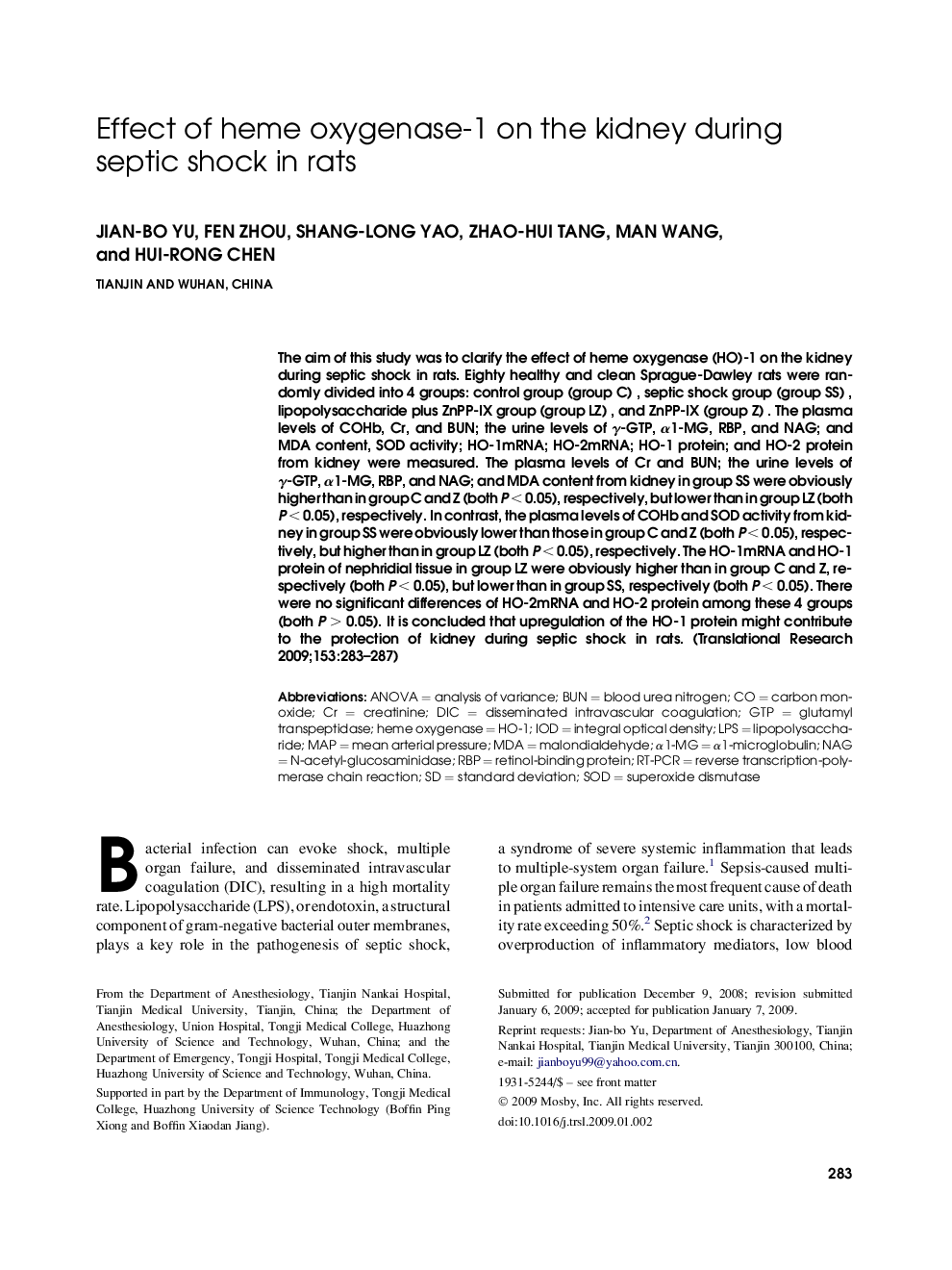| کد مقاله | کد نشریه | سال انتشار | مقاله انگلیسی | نسخه تمام متن |
|---|---|---|---|---|
| 3841052 | 1247955 | 2009 | 5 صفحه PDF | دانلود رایگان |

The aim of this study was to clarify the effect of heme oxygenase (HO)-1 on the kidney during septic shock in rats. Eighty healthy and clean Sprague-Dawley rats were randomly divided into 4 groups: control group (group C) , septic shock group (group SS) , lipopolysaccharide plus ZnPP-IX group (group LZ) , and ZnPP-IX (group Z) . The plasma levels of COHb, Cr, and BUN; the urine levels of γ-GTP, α1-MG, RBP, and NAG; and MDA content, SOD activity; HO-1mRNA; HO-2mRNA; HO-1 protein; and HO-2 protein from kidney were measured. The plasma levels of Cr and BUN; the urine levels of γ-GTP, α1-MG, RBP, and NAG; and MDA content from kidney in group SS were obviously higher than in group C and Z (both P < 0.05), respectively, but lower than in group LZ (both P < 0.05), respectively. In contrast, the plasma levels of COHb and SOD activity from kidney in group SS were obviously lower than those in group C and Z (both P < 0.05), respectively, but higher than in group LZ (both P < 0.05), respectively. The HO-1mRNA and HO-1 protein of nephridial tissue in group LZ were obviously higher than in group C and Z, respectively (both P < 0.05), but lower than in group SS, respectively (both P < 0.05). There were no significant differences of HO-2mRNA and HO-2 protein among these 4 groups (both P > 0.05). It is concluded that upregulation of the HO-1 protein might contribute to the protection of kidney during septic shock in rats.
Journal: Translational Research - Volume 153, Issue 6, June 2009, Pages 283–287